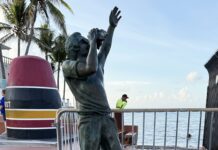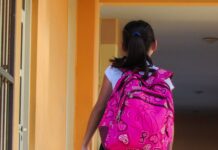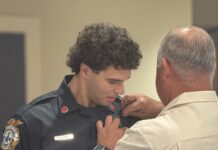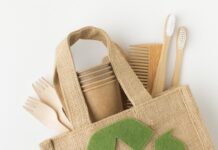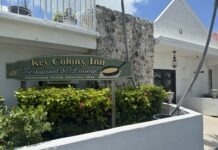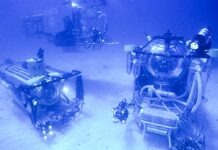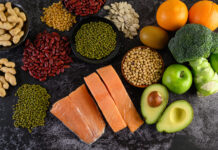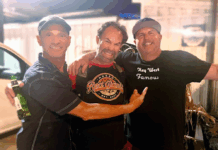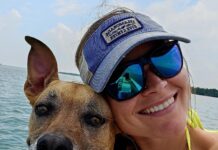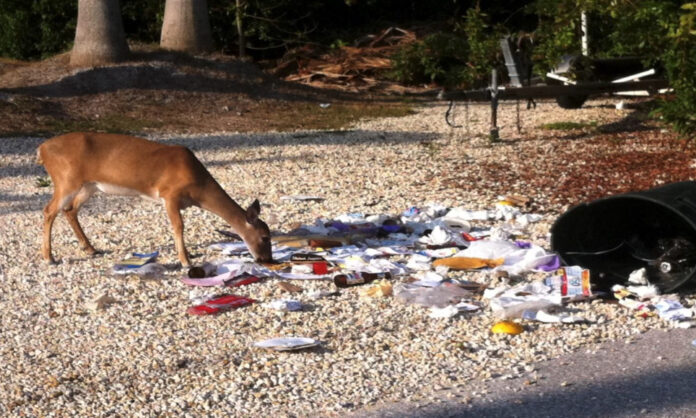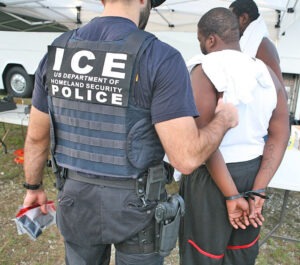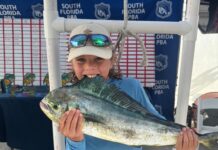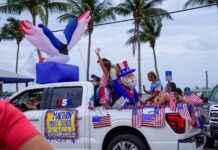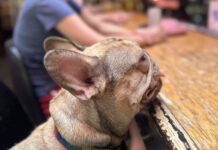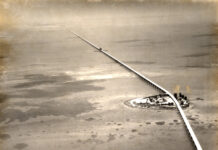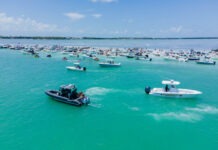Most of the Florida Keys are in a wildlife protected area and part of the Florida Keys National Marine Sanctuary. Unfortunately, it’s not uncommon to see overturned trash cans in neighborhoods.
Whether it’s due to wildlife or the weather, it’s a result of resident neglect. Seasonal and full-time residents must secure the cans to prevent the spread of debris throughout the environment and waterways. There are several simple ways to secure the receptacles. Placing the containers inside a basic wooden corral prevents the cans from turning over. Then securing the lids with two bungee cords or even a gravity lock will keep those smart critters from making a meal and a mess out of your trash. “But the garbage company loses the cords.” This is true if you don’t crimp the metal part of the bungee around the can handle before securing the lid. With a little creativity, it can be done.
Chicken and chum are a must on the water
The parks, marinas and boat ramps also fall victim to human carelessness. The cans are already full when people continue to pile trash on top of the overflowing barrel or even beside the barrel. Used bait coolers, plastic bags, chicken bones and chum boxes blow into the nearby vegetation or even into the water. Although we all love a box of chicken and potato salad while trolling chum and fishing our lovely Key’s channels, the leftovers are lethal to our environment. When finished enjoying the day on the water, trash must be disposed of responsibly. If the marina or boat ramp trash barrels are already full, take your debris home or to your rental to dispose of properly. If you have broken fishing gear or line, be sure to dispose of it in a way that wildlife cannot reach it.
Wildlife depends on us
The saying, “one man’s trash is another man’s treasure” does not apply to our environment. The debris humans spread around the Keys is killing the environment and wildlife we all love. One of the favorite foods of sea turtles is jellyfish. When our plastic bags are in the water, to a sea turtle, they look like jellyfish. If these bags don’t suffocate the turtles, they may be eaten and cause internal damage, often leading to a slow and painful death.
Microplastics are also consumed by aquatic life and then absorbed into the animal’s tissues, causing genetic deformity and/or toxicity to the meat we and other wildlife eat. Our land animals also love to eat our trash.Within the neighborhoods are Key deer, raccoons, opossums and rats. Many residents theorize these animals collaborate with a strategy to break into receptacles and share the loot. When Key deer gather to do so, the gathering is as harmful as the toxic food they are sharing. Just by the deer gathering, they spread bacteria and diseases. This leads to brain abscesses, lumpy jaws, the spread of lethal parasites and more.
At marinas and boat ramps, the wildlife, including birds, love the fishing leftovers. The bait containers and fishing parts often include fishing hooks, leaders, and lines. The animals eat the trash and all. Mammals and birds are disabled by fishing line and hooks. I recall trying to rescue a great white heron at Bahia Honda State Park with a wrapped fishing line and a hook in the beak. After weeks of attempted rescues, it was found dead from dehydration and malnutrition. The Keys are a beautiful place to visit and live in, but we all must respectfully preserve and protect them.
Some tips for residents and visitors
- At your residence, use a corral to secure trash and recycling receptacles.
- Secure receptacle lids with two bungee cords or a gravity lock.
- When planning a day on the water, control plastic bags and use them to collect your trash, recyclables, fishing debris bait and viscera.
- If public trash barrels are full, please take your debris back to your home or rental for disposal — do not overfill.
- Place clean recyclables in the appropriate receptacle.
- Dispose of tackle in a secure monofilament recycling container located at most boat ramps, state parks and marinas – never throw into an insecure receptacle for wildlife to recover.

